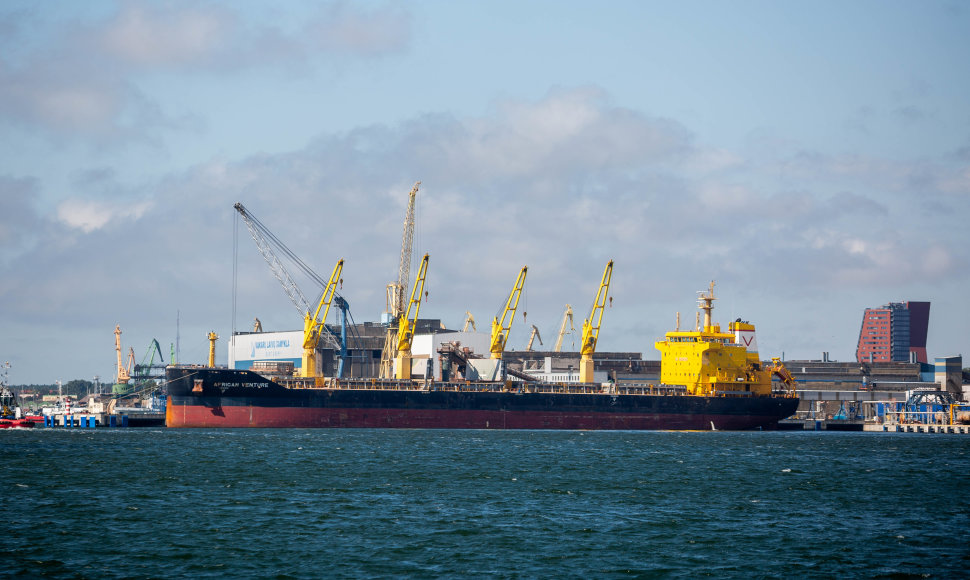According to Žygimantas Mauricas, A. Lukashenko‘s threats to the port should encourage a rethinking of the future.
“You shouldn’t bet all the investment money on that card [Belarus] and this might be a good piece of encouragement for Klaipėda Seaport to rethink its future and how to ensure its competitiveness by other means,” Ž. Mauricas told BNS.
“While developing our infrastructure, both the ports and railways, the political instability of such countries must be considered and evaluated. I believe that there is a need to diversify operations and not become overly reliant on that flow of cargo from East to West because we see that the geopolitical situation is becoming acute,” he added.
According to Ž. Mauricas, there is vast competition in the Baltic Sea region even without considering the political aspect because both Russia and Poland funnel significant funds into their port infrastructure. Due to this, according to the economist, Klaipėda should think of other ways to increase its competitiveness.
“The LNG terminal is an example that has expanded into all other side operations. Lithuania had fairly significant achievements with its container distribution centre. I believe that projects of this scope have better prospects and are safer than dependency on the East to West direction,” Ž. Mauricas said.
According to him, Belarus will not divert all cargo away from Klaipėda Seaport and furthermore, it is impossible to do this at a moment’s notice.
“The fact is that diverting all cargo over a short period of time is practically impossible. It’s a question of to what extent and at what speeds it will be diverted, if at all,” he said.
A. Lukashenko declared on Tuesday that he expects to come to an agreement with Russia on Belarussian cargo transit being diverted from the Baltic States to Russian ports.
He threatened to divert cargo from Klaipėda with Lithuania actively supporting the Belarussian opposition. On Monday, the Baltic States announced a list of individuals, which includes A. Lukashenko himself, upon whom national sanctions have been imposed.
A. Lukashenko has previously said that Belarussian cargo flows generate 30% of Lithuania’s budget revenue, but SME Finance economist Aleksandras Izgorodinas says that such claims are obviously false because the Lithuanian budget received almost 70% of its revenue last year from consumption taxes – VAT and excises.
“I definitely could not highlight Klaipėda Seaport as a subject, which contributes 30% of all tax revenue. One must admit that Lithuania’s economy is sufficiently large, has many large companies, not only Klaipėda Seaport and so, it definitely does not contribute 30% of all budget revenue,” A. Izgorodinas told BNS.
According to him, while the budget revenue Lithuania would lose upon Belarus turning its cargo elsewhere would be fairly substantial, it would not have a structural impact on the country’s economy.
“The budget is currently suffering the most from a decline in consumption because this will have the largest influence. People are currently cautious in their views of the economy and labour market. While consumption is recovering, some people are definitely uninclined to consume. This will have a structural impact on the Lithuanian economy and budget,” the economist commented.
A study performed several years ago by the business consultancy and audit company Ernst & Young Baltic regarding the influence of Klaipėda Seaport on the port city and the country indicated that a tonne of cargo handled in the port brings around 11 euro in revenue to the state budget.
Last year, Klaipėda Seaport saw 14.1 million tonnes of Belarussian cargo handled, which comprises a little over 30% of the port’s total handling volume (46.3 million tonnes). Based on calculations by Ernst & Young Baltic, the Lithuanian budget received around 155 million euro in revenue from Belarussian cargo, which comprised around 1.4% of all budget revenue, which was at 10.783 billion euro.












